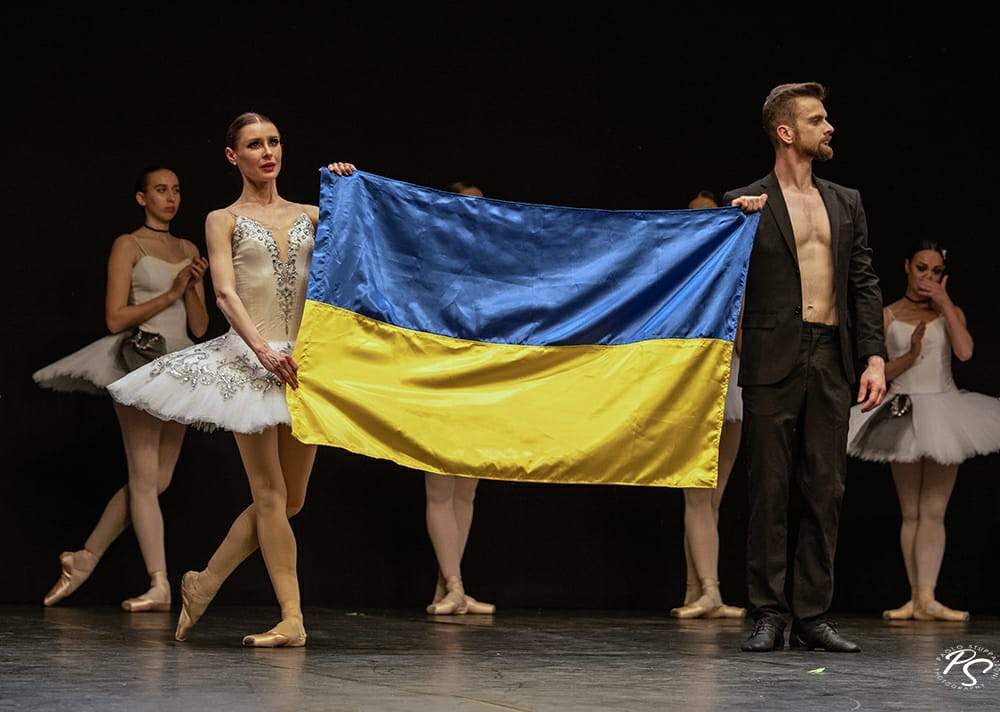Censoring Tchaikovsky? Italy has nothing to do with it: 'Kiev won't, dancers would suffer consequences'
Censorship, yes, but our theaters have nothing to do with it: the replacement of ballet performances in which works by Russian artists are performed is not an attempt by Italian theaters to erase Russian culture, but a way to protect Ukrainian dancers who risk serious consequences at home in case they find themselves dancing abroad to the notes of Pyotr Ilič Čaikovsky or other great Russian musicians. The case of censorship on Russian classical music broke out after a number of theaters (Teatro Sociale in Como, Teatro Comunale in Lonigo, Teatro Comunale in Ferrara, Teatro Rossetti in Trieste, TuscanyHall in Florence) canceled performances of Swan Lake planned as part of Theatre for Ukraine, an initiative of producer ColossArt Production: dancers from the National Opera of Ukraine and other major companies in the war-torn country are performing to the notes of Čaikovsky for a show to benefit Ukrainian artists, to enable them to work while their country is at war and therefore cannot do so at home. For the performances already performed, rather than canceling the date, they preferred to make substitutions with music by Chopin, Adolpe-Charles Adam and others.
The point is that Kiev does not like its dancers dancing to Russian music. In fact, the company assembled by ColossArt employs dancers who have left Ukraine and belong to different companies in the Eastern European country. What happened in recent days, Natalia Iordanov, artistic director of ColossArt, a Moldavian, explained to Corriere del Veneto: “One after another, our dancers were contacted by the managements of their respective theaters, including the National Opera, and were told, ’Since Russia is carrying out a real massacre, you cannot stage the works of Russian authors, otherwise we will be forced to fire you and you may be arrested for treason.’ Do you understand that? They literally threatened us.”
The director of the Municipal Theater of Ferrara, Marcello Corvino, also confirmed Iordanov’s version in an interview with the Resto del Carlino today and explained that the Ferrara Theater is firmly opposed to censorship, but was in fact forced to cancel the performance of Swan Lake in the interest of the Ukrainian dancers, who might suffer consequences at home. “The dancers were called in by the directors of their individual theaters. They were threatened heavily: they would face up to 15 years in prison on charges of high treason.” For Corvino, it is “a folly,” and the director himself does not mince words in calling this choice on the part of the Ukrainian government: “I have premised from the very beginning that the direction taken by the government led by Zelens’kij is absurd, dare I say a piece of rubbish. But, in order to safeguard the artists, we had to veer elsewhere. For our part, there was no censorship.”
Similarly, Trieste’s Rossetti, where Swan Lake was to be performed on April 14, is speaking out against the censorship: “The Teatro Stabile del Friuli Venezia Giulia,” the institute says in a note, “regrets the decision and does not share the ban as it believes in culture as a tool for dialogue that knows no boundaries. However, it accepts the request of the artists of theUkrainian Classical Ballet in order not to expose them to further problems, also taking into account theottica in which this initiative was born: a solidarity race of numerous Italian theaters - including the regional Stabile - hosting lensemble unable to return to their homeland, allowing them to continue working on tour.”
Ukraine’s positions on the performances performed by its dancers around the world have been expressed publicly. Several interventions on the issue by Ukraine’s Minister of Culture Oleksandr Tkachenko, who has repeatedly called on his compatriots to refrain from spreading Russian culture, can be counted: “the Kremlin,” he wrote on Telegram in an April 4 post, “uses culture as a propaganda tool following the example of the Nazis. [...] The participation of Ukrainian artists and performers in joint projects with Russians under the slogan ’we are for peace’ is an attempt to manipulate the real causes of the war in Ukraine unleashed by the Putin regime. We stress that the Ministry of Culture and Information Policy of Ukraine does not support such event formats. At the same time, we appeal to Ukrainian artists abroad to be the voice of Ukrainian culture on world stages and discussion platforms.” And then again, on April 5, he spoke of a real ban: “The culture of the aggressor country should be banned. Because it is a tool of Russian propaganda. Yes, including Russian ballet. Especially Russian ballet [...]. The Russians turned out to be so inhuman that they attacked Ukraine. They started cynically killing Ukrainians. That is why the world must stop applauding their ballet.”
On the consequences for Ukrainian dancers upon their return to their country, theNational Opera of Ukraine spoke out on April 5, beginning by distancing itself from the Ballet for Peace benefit concert held in Naples at the Teatro San Carlo on April 4. The event gathered prima ballet dancers from various theaters around the world, and its program included music by Chopin, Ravel, Armsheimer, Saint Saëns, Čaikovsky, Blondie, Philipp Glass, Glazunov, Šostakovič, Radiohead, Claudio Monteverdi, Astor Piazolla, Skoryk, Jacques Brel, Massenet. The proceeds were donated to the Italian Red Cross - Naples Committee for initiatives in favor of Ukraine. “Since the beginning of the military aggression of the Russian Federation (as of Feb. 24, 2022), the entire creative team of the theater is idle, in accordance with current Ukrainian legislation,” the National Opera of Ukraine wrote in a note. “While idle, the theater staff determines its position at its own discretion. Some of the performers have left Ukraine, even with evacuation trains. Under current circumstances, it is not possible to control the location of each of the theater’s employees while they are inactive. We can assume that during this period our artists may receive private invitations ??to collaborate with foreign companies and agencies. The National Opera of Ukraine has nothing to do with the participation of theater artists in the event. No appeals have been received by the theater regarding their participation in this concert, no contracts have been signed, no documents for business trips have been drawn up.”
The Opera then reiterated that Ukrainian dancers who take part in unwelcome events in Kiev will suffer consequences upon their return: “We are deeply outraged by the actions of our colleagues. Upon their return to work, they will be investigated and sanctioned in accordance with the current legislation of Ukraine.” Then there are also words for the ColossArt tour: "We would like to point out that today we learned that the production company ColossArt Production is announcing a tour of the cities of Italy, using the brand of the National Opera of Ukraine. As part of this tour, 13 performances in Italian cities are planned. Of particular outrage is the fact that the ballet Swan Lake by Čaikovsky is being performed. We are saddened to learn that among the performers announced in these performances are artists from our theater who have given their consent in private. All have been warned of disciplinary responsibility for participation in these activities, which is provided for in their employment contracts. We emphasize that no negotiations have been conducted between ColossArt Production and the National Opera of Ukraine, no contracts have been concluded. Management has sent an official protest to the organizers of this tour." Finally, the National Opera of Ukraine has let it be known that it will soon start a tour in Italy.
 |
| Censoring Tchaikovsky? Italy has nothing to do with it: 'Kiev won't, dancers would suffer consequences' |
Warning: the translation into English of the original Italian article was created using automatic tools. We undertake to review all articles, but we do not guarantee the total absence of inaccuracies in the translation due to the program. You can find the original by clicking on the ITA button. If you find any mistake,please contact us.



























